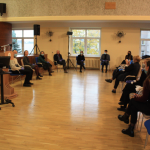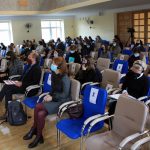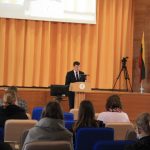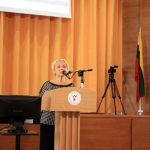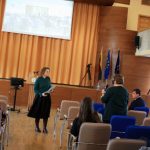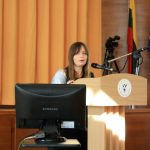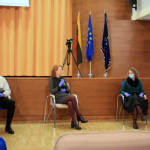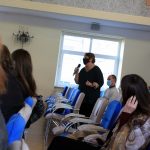International Conference at Faculty of Pedagogics: “Fatherhood in Prison Setting: Boundaries and Opportunities”
On 22–23 October, 2020 Vilniaus Kolegija / University of Applied Sciences, in partnership with Pravieniškės Correction House-Open Prison Colony and the Research Council of Lithuania organized the international scientific conference “Fatherhood in Prison Setting: Boundaries and Opportunities”.
The conference was attended by researchers, professors, students of social sciences, as well as representatives of penitentiary institutions and the Lithuanian Centre for Human Rights. 16 speakers from Poland, Finland, Italy, Malta, the Netherlands and Lithuania gave presentations on two key topics – the resocialization of convicted persons and the possibilities of enabling fatherhood in prison setting. Conference speakers included prof. Carmel Borg from the University of Malta, Dr. Gintautas Sakalauskas from Vilnius University (Lithuania), Dr. Rūta Vaičiūnienė from the Law Institute of Lithuania, Dr. Marta Gavrilovienė from Vilnius Correction House, Dr. Maria D’Ambrosio from the Suor Orsola Benincasa University of Naples (Italy), Dr. Goos Cardol and Wim Goosens from the Zuyd University of Applied Sciences (the Netherlands), Audronė Bedorf from Office of the Ombudsperson for Children‘s Rights (Lithuania), dr. Maciej Bernaciewicz and dr. Ewa Bielska from the University of Silesia in Katowice (Poland), Mari Rinta from the Finnish Foundation for Supporting Ex-offenders, and Wojciech Emerling, the director of the Jastrzebie-Zdroj Prison in Poland.
The conference aimed to examine the needs of convicted fathers and their children, as well as the negative outcomes of imprisonment. Participants discussed the methods that would enable imprisoned fathers to stay involved in their children’s lives, strengthen interinstitutional cooperation and find new opportunities. During a discussion, speakers reflected on the goal of imprisonment, the effectiveness of resocialization practices, and the psychosocial state of the children of convicted fathers. All speakers emphasized the importance of reclaiming humanity in a prison setting, of establishing horizontal relationships and opening an authentic dialog with imprisoned parents as the key to a successful resocialisation process. Participants stressed the importance of issues discussed during the conference. As professor Carmel Borg put it, “this conference is about reclaiming visibility, enabling the voice of prisoners and incarcerated parents, and this a very essential condition of changing the overall situation in the penitentiary system.”
